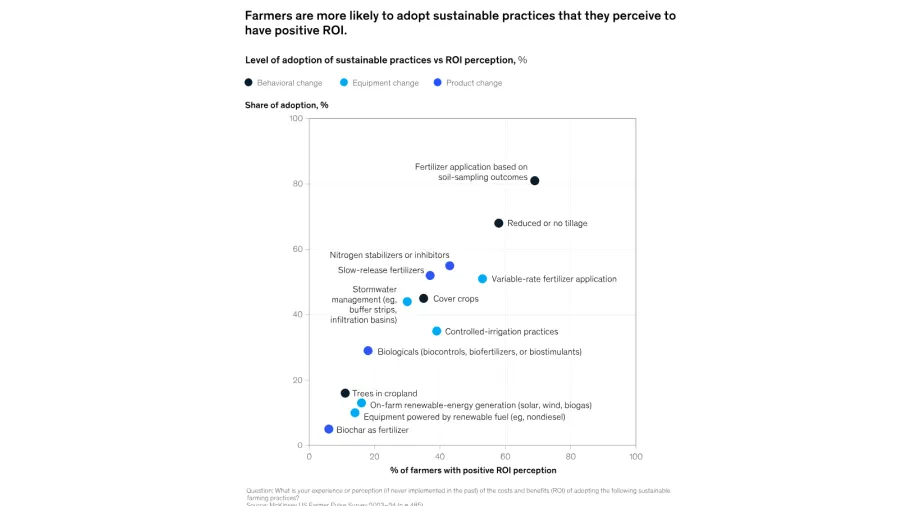
Farmers likely to adopt sustainable farming practices linked to ROI
The ROI, however, depends on a combination of factors such as crop yield, and prices.
The adoption of sustainable farming practices is highly correlated with a farmer’s perceived return on investment, McKinsey reported.
Among the practices with the highest perceived ROI are applying fertilizer based on soil sampling, reducing or eliminating, and implementing variable-rate fertilization.
“Farmers expect many of the practices to have positive long-term benefits, such as a 3 to 5 percent yield rise and higher land value,” the report read.
“However, farmers said they expect costs to remain 1 to 3 percent higher for most practices after more than five years of adoption.”
McKinsey noted that ROI depends on a combination of factors, such as crop yield, crop prices, land value, and input, labor, and equipment costs.
“Although farmers said they generally expect the use of sustainable-farming practices to raise their costs, they also expect this increase to pay dividends in higher crop yield, land value appreciation, and better crop pricing.”













